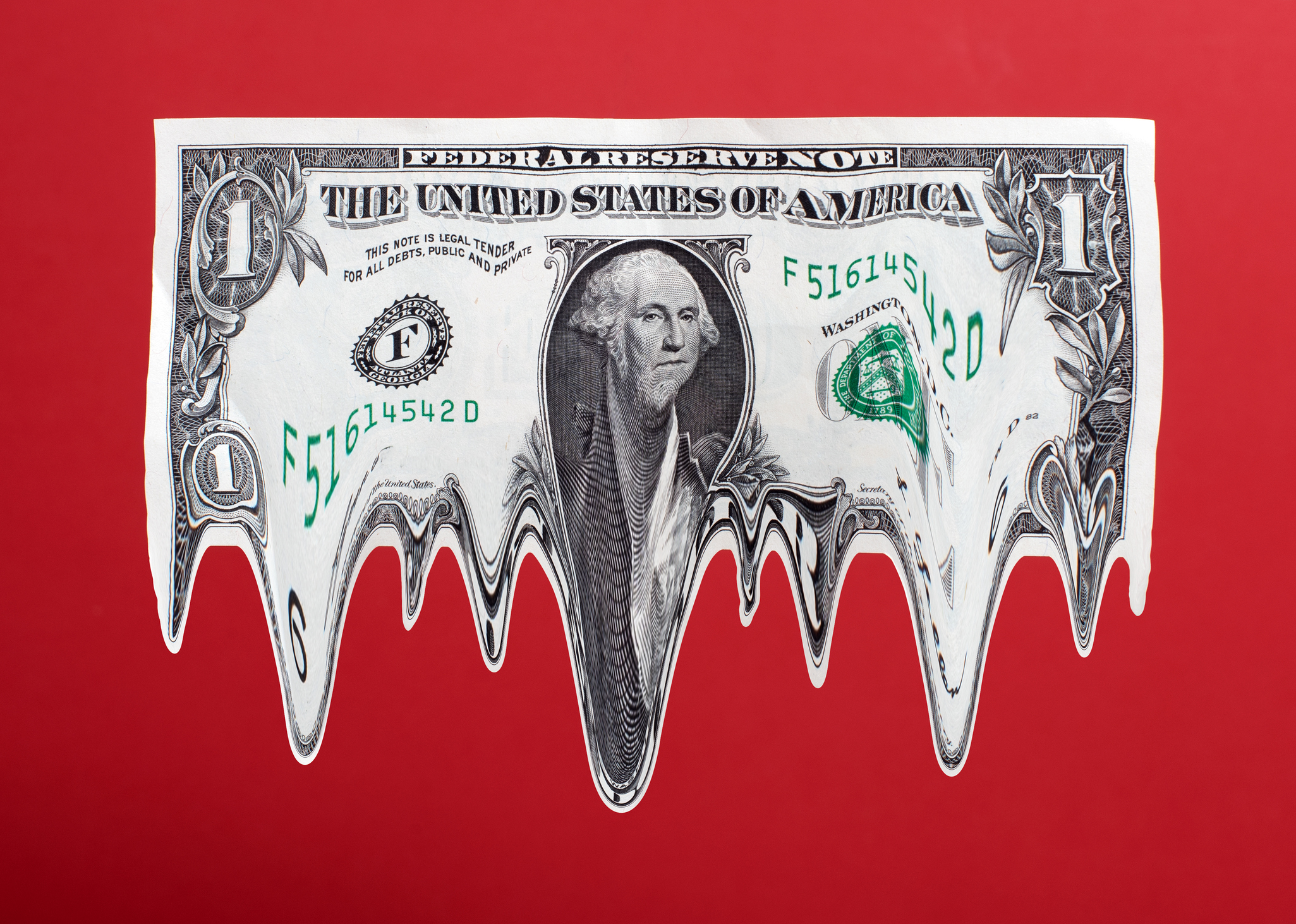Why Amazon is splitting its shares
Slicing a cake into more pieces doesn’t give you more cake. So why is Amazon dividing its shares by 20?


Get the latest financial news, insights and expert analysis from our award-winning MoneyWeek team, to help you understand what really matters when it comes to your finances.
You are now subscribed
Your newsletter sign-up was successful
Want to add more newsletters?

Twice daily
MoneyWeek
Get the latest financial news, insights and expert analysis from our award-winning MoneyWeek team, to help you understand what really matters when it comes to your finances.

Four times a week
Look After My Bills
Sign up to our free money-saving newsletter, filled with the latest news and expert advice to help you find the best tips and deals for managing your bills. Start saving today!
Amazon has just announced a stock split for the first time since the dotcom bubble years. It’s the fourth such split in the company’s near-30-year history. Assuming the move is approved at the annual general meeting in May, then from 6 June, Amazon’s investors will get 19 extra shares for each one they already hold (what’s known as a 20-for-one split). Alphabet – Google’s parent company – did the same thing last month, for only the second time since it went public in 2004.
To be very clear, share splits make no difference to the value of the company. It’s as if I gave you a cake, then said I was going to cut it into 20 slices. You’d still have exactly the same amount of cake (for the pedants out there, we’ll assume no loss to crumbling or sticking to the knife). Yet the share price bounced significantly on the news. So to ask the obvious question: what’s the point of doing this, and why the excitement?
What’s the point?
The rationale often given for stock splits is to reduce the price of an individual share, thus making them more accessible – and indeed, that’s how Amazon spun it. Yet as we note below, this isn’t all that convincing, particularly in these days, when fractional share ownership is possible.
MoneyWeek
Subscribe to MoneyWeek today and get your first six magazine issues absolutely FREE

Sign up to Money Morning
Don't miss the latest investment and personal finances news, market analysis, plus money-saving tips with our free twice-daily newsletter
Don't miss the latest investment and personal finances news, market analysis, plus money-saving tips with our free twice-daily newsletter
Bloomberg’s Jonathan Levin and Eric Savitz in Barron’s suggest a more convincing reason why Amazon and Alphabet might want to consider stock splits. It’s all about getting more exposure to index-tracking funds. How? Alongside the S&P 500, the Dow Jones Industrial Average is the best-known stock index in the US. It comprises 30 big-name US companies. However, it’s built in a way that may have made sense when it was launched in 1896, but no longer does. The S&P 500 – like most headline market indices – is based on market capitalisation (the share price multiplied by the number of shares in issue). In short, the bigger the market cap, the greater its weighting in the index.
By contrast, the Dow is weighted simply by share price. For example, UnitedHealth Group is the top-weighted Dow stock with a share price of around $500. Intel is the lowest, on $45. Yet United’s market cap of $460bn is less than three times that of Intel on $181bn. As a result of this odd methodology, the committee makes sure that the highest-priced stock in the index remains roughly ten times the price of the lowest. That means Amazon or Alphabet on share prices of around $2,500-$3,000 are simply too pricey for the Dow (whereas Apple, a fellow tech giant, is in the Dow with a share price of around $150). A 20-for-one split will put both in the running for the Dow – and all that lovely passive money flow.
Get the latest financial news, insights and expert analysis from our award-winning MoneyWeek team, to help you understand what really matters when it comes to your finances.

-
 Last chance to invest in VCTs? Here's what you need to know
Last chance to invest in VCTs? Here's what you need to knowInvestors have pumped millions more into Venture Capital Trusts (VCTS) so far this tax year, but time is running out to take advantage of tax perks from them.
-
 ISA quiz: How much do you know about the tax wrapper?
ISA quiz: How much do you know about the tax wrapper?Quiz One of the most efficient ways to keep your savings or investments free from tax is by putting them in an Individual Savings Account (ISA). How much do you know about ISAs?
-
 Profit from MSCI – the backbone of finance
Profit from MSCI – the backbone of financeAs an index provider, MSCI is a key part of the global financial system. Its shares look cheap
-
 'AI is the real deal – it will change our world in more ways than we can imagine'
'AI is the real deal – it will change our world in more ways than we can imagine'Interview Rob Arnott of Research Affiliates talks to Andrew Van Sickle about the AI bubble, the impact of tariffs on inflation and the outlook for gold and China
-
 Three promising emerging-market stocks to diversify your portfolio
Three promising emerging-market stocks to diversify your portfolioOpinion Omar Negyal, portfolio manager, JPMorgan Global Emerging Markets Income Trust, highlights three emerging-market stocks where he’d put his money
-
 Exciting opportunities in biotech
Exciting opportunities in biotechBiotech firms should profit from the ‘patent cliff’, which will force big pharmaceutical companies to innovate or make acquisitions
-
 What turns a stock market crash into a financial crisis?
What turns a stock market crash into a financial crisis?Opinion Professor Linda Yueh's popular book on major stock market crashes misses key lessons, says Max King
-
 The state of Iran’s collapsing economy – and why people are protesting
The state of Iran’s collapsing economy – and why people are protestingIran has long been mired in an economic crisis that is part of a wider systemic failure. Do the protests show a way out?
-
 The rise and fall of Nicolás Maduro, Venezuela's ruthless dictator
The rise and fall of Nicolás Maduro, Venezuela's ruthless dictatorNicolás Maduro is known for getting what he wants out of any situation. That might be a challenge now
-
 New year, same market forecasts
New year, same market forecastsForecasts from banks and brokers are as bullish as ever this year, but there is less conviction about the US, says Cris Sholto Heaton